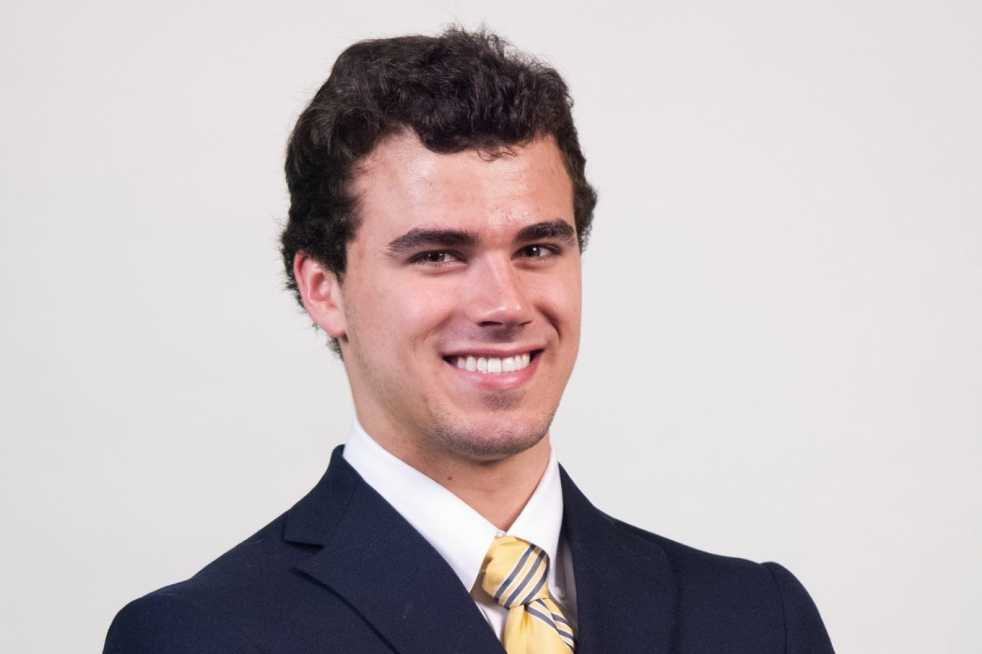The Goldwater Scholarship is awarded to those select students studying science, math and engineering who wholeheartedly intend to pursue research careers in their academic fields.
Recently, two Tech undergraduates have been honored with this prestigious award. The first, Thomas Kieffer, is a fourth-year Astrophysics major. The other is Mohamad Ali Najia, a fourth-year Physics and Applied Mathematics major, with a focus on Computational Media.
Technique: What do you like to do/be involved in when you’re not doing schoolwork?
Kieffer: I enjoy working out and I also play guitar. There isn’t much free time outside schoolwork, though, and usually if I am not doing something related to courses I am taking, I am exploring on my own and dipping into more advanced subjects.
Najia: I am Editor-in-Chief of The Tower Undergraduate Research Journal. I have a lot of professional pride serving in this role and fulfilling The Tower’s core mission of showcasing, inspiring and promoting Tech undergraduate research to the nation…. Outside of academics, I greatly enjoy traveling the world (to date I have visited 26 countries) and playing golf.
Technique: How has winning this scholarship impacted your life?
Kieffer: The scholarship generated a lot of attention that I am not use to. Both good and bad.
Najia: Even before I was awarded the Goldwater, I wanted to go to graduate school to earn a PhD in biomedical engineering. The Goldwater reaffirms my commitment to achieve an advance degree and make a positive impact on society through biomedical research. Ultimately, the Goldwater Scholarship is an initial step toward building a career in the biomedical engineering field, and performing impactful research that can benefit the lives of millions of patients.
Technique: What do you want to do when you grow up?
Kieffer: I want to be a theoretical physicist.
Najia: I endeavor to become a professor and run a lab focused on genome engineering to promote the generation of functional, patient-specific tissues and organs. Later in my academic career, I ultimately want to serve in a scientific leadership role in the government, particularly as Director of the National Institutes of Health.
Technique: What advice would you give to students who have aspirations to win a similar award?
Kieffer: Start working on the application early and have many eyes review the application essay.
Najia: The ability to achieve anything in life, not just awards or accolades, starts with personal ambition and hard work. Identify your interests and goals early then determine the steps you need to take to achieve these goals. Setbacks and failures should not be a determent from achieving your goals because there are no shortcuts to anything worth doing.
Technique: Where are you from, and what led you to Tech?
Kieffer: I am from Navarre, FL. I came to Tech because it was the closest place to home that had the academics I am interested in.
Najia: I come from a Lebanese-Italian family, and was born and raised in Boston, MA. In high school I knew early on that I wanted to study biomedical engineering and perform stem cell research. I was drawn to the Biomedical Engineering Department’s world-class reputation and research opportunities.
Technique: What projects/efforts helped you become a recipient of this scholarship?
Kieffer: The research I am involved in with Professor Bogdanovic in the Center for Relativistic Astrophysics.
Najia: I have been working in Dr. Todd McDevitt’s Engineering Stem Cell Technologies Lab in the Department of Biomedical Engineering since a first-semester freshman. During my time in the lab my research has focused on engineering the microenvironment in which embryonic stem cells live. In particular, I have been working on a culture platform wherein mouse embryonic stem cells are encapsulated in alginate microcapsules to modulate not only stem cell fate, but also the factors these stem cells secrete.
This past summer I was a bioinformatics fellow through the Harvard-MIT Division of Health Sciences & Technology. Over the course of the summer I was investigating how certain human genes are activated and silenced…The findings from this project creates opportunities to selectively control certain genes to modulate cell fate and phenotype. To share these novel findings with researchers outside our collaborative circle, I am currently co-authoring a scientific publication for a peer-reviewed journal.
Technique: What is your favorite part about your time as a student here?
Kieffer: Learning, of course. The hardest part, though, has definitely been the fact that there are many challenges here. The hardest of all had to be getting used to the realization that I know just shy of nothing when it comes to physics and mathematics.
Najia: I have greatly enjoyed my time as an undergraduate researcher. Performing research at Georgia Tech has been one of the most rewarding and life changing experiences. Discovering something that no one else in the world has seen before is highly exciting, motivating and humbling. As an undergraduate researcher, I have grown to think critically, be inquisitive and learn to embrace unexpected results. I have also been able to travel the world to present my research.
I have also greatly enjoyed being a Teaching Assistant for CS 1371 because helping students to succeed has enlightened me that a career in academia where I have the opportunity to teach as a professor is my calling.
Technique: What/who has helped you grow the most during your undergraduate career here?
Kieffer: I have developed intellectual relationships with several professors here at Tech, and many of them have provided remarkable advice towards pursuing the title of a Theoretical Physicist. Professor Bogdanovic is one example.
Najia: I am very grateful for the mentorship and support of Georgia Tech professors Todd McDevitt and Brani Vidakovic, as well as HMS Assistant Professor Alexander Gimelbrant.
